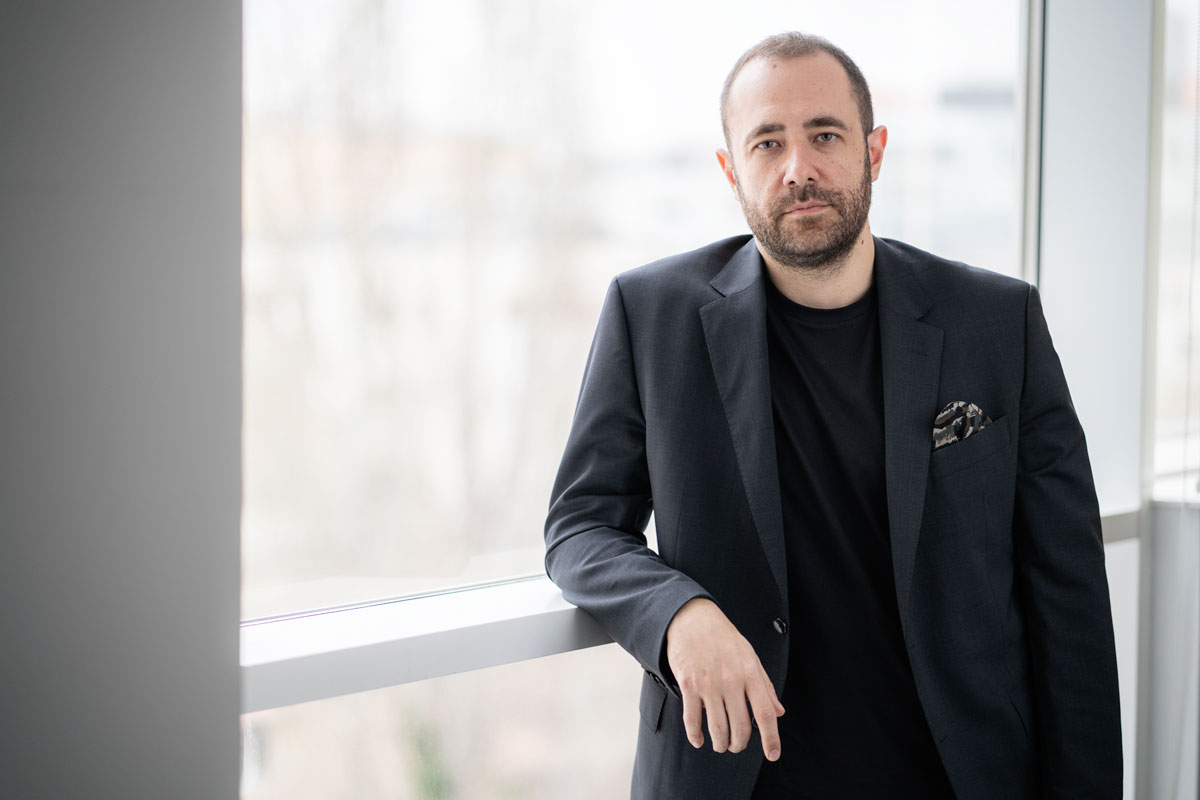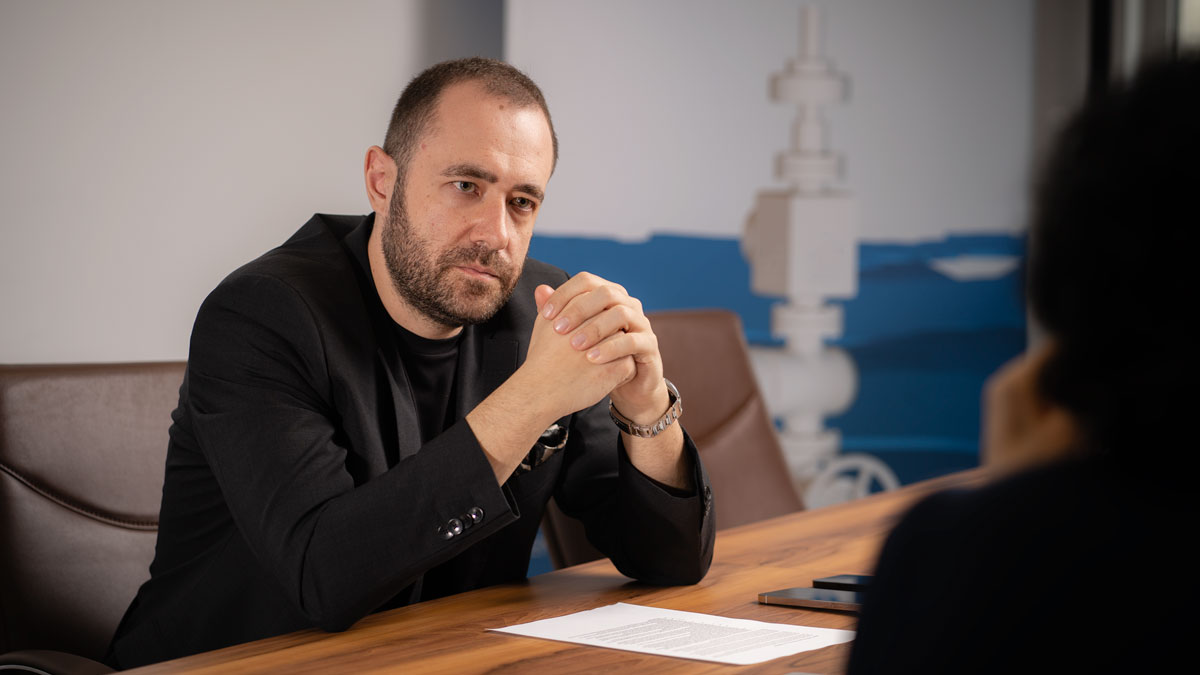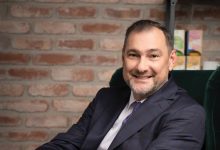Razvan Popescu, CEO of ROMGAZ, on Company’s Most Important Projects
We talk to Razvan Popescu – CEO of ROMGAZ, about the most important projects of the company – Neptun Deep, Caragele, Iernut Combined Cycle Gas Turbine Power Plant, as well as about the strategic development directions of the company in the coming period.
ROMGAZ, the largest natural gas producer and supplier in Romania, has extensive experience in the field of natural gas exploration and production, its tradition dating back to 1909, when the first natural gas field was discovered in the Transylvanian Basin, at Sarmasel. The company is admitted to trading since 2013 on the Bucharest Stock Exchange and on London Stock Exchange (LSE).
Razvan Popescu took over as CEO of ROMGAZ in August 2022, after a period of about two years as Chief financial officer of Romania’s largest natural gas producer. He is currently coordinating and manages the company in order to achieve its strategic objectives.
As economic director he coordinated, from a financial point of view, the transaction of acquisition of all the shares issued by (representing 100% of the share capital of) ExxonMobil Exploration and Production Romania Limited, which held 50% of the acquired rights and of the obligations assumed under the Petroleum Agreement for the deepwater area of the offshore XIX Neptun Block in the Black Sea. This was the most important transaction in the last 30 years in the Romanian energy sector, in line with the company’s successfully completed development strategy, aimed at ensuring energy security in the region.
The experience gained after almost nine years at the NBR in the International Reserves Administration has allowed Razvan Popescu to gain in-depth knowledge of global financial markets and traded credit instruments, as well as of the factors influencing their developments in the asset allocation process. He has gained significant experience in international foreign exchange market analysis and trading, risk management and financial analysis, which has been proven in ROMGAZ’s financial performance during his term.
Mr. Razvan Popescu, from a financial analyst’s point of view, how do you see the evolution of the BET-NG index, which reflects the performance of energy and utility companies on the Bucharest Stock Exchange (BVB), for the current year? Especially considering the large weight of ROMGAZ in this index…
Razvan Popescu: In my opinion, the evolution of the BET-NG index reflected the expectations of investors and market participants regarding the exceptional profits realised by oil and gas companies. This index includes both ROMGAZ and our main competitor. Automatically, the evolution of this index is somehow linked to the evolution of the Neptun Deep project, in which we are equal partners with our competitor.
It is obvious that investors have been expecting substantial dividends, obviously wanting to benefit from the profits of oil and gas companies.
At the same time, I believe that the evolution of the BET-NG index was also slightly influenced by the emergency ordinances introduced by both the Romanian state and the European Union on the taxation and over-taxation of these companies in the oil and gas sector.
Obviously, in the energy sector, the discussion focuses on major hydrocarbon exploitation projects and the framework needed to capitalise on these resources. According to the ROMGAZ Investment Programme announced for 2023, the main objectives are to increase the reserves and resources portfolio (onshore and offshore), offset the natural decline in gas production and electricity generation. Can you elaborate on this?
Razvan Popescu: For this year, ROMGAZ aims to carry out an investment programme with a total budget of almost RON 2.3 billion, based on objectives aimed at increasing the portfolio of reserves and resources, offsetting the natural decline in natural gas production, mainly through the subsidiary ROMGAZ Black Sea, which is the direct investor in the Neptun Deep project.
Approximately half of this amount will be dedicated to ROMGAZ Black Sea, to maintaining the 12.2% interest together with Lukoil in the Trident project, to the continuation and completion of the construction of the Iernut power plant, and also to the upgrading of equipment and facilities for well intervention and special operations and the acquisition of new equipment and facilities specific to this activity.

OMV Petrom said in February this year that it would make the final investment decision on the Neptun Deep project in mid-2023. What is ROMGAZ’s position on this issue?
Razvan Popescu: ROMGAZ took the implicit investment decision in the Neptun Deep project with the acquisition of Exxon’s Romanian branch. When we made this acquisition, we had all the plans in place to develop this project and ultimately to be able to extract natural gas, otherwise this investment made no sense.
For Romgaz, this FID will pass all corporate approval steps, in parallel with the financing process. According to the operator, the final investment decision will be made this summer.
How will the Neptun Deep project be funded? What are the next steps, given that in 2022 you have stated that ROMGAZ was considering selling international bonds? What is the value of the first issues? How important is the signing of the recent agreement with OMV Petrom and Transgaz, for the conclusion of Black Sea gas transmission contracts?
Razvan Popescu: ROMGAZ is currently carrying out an economic evaluation of the entire ROMGAZ group, including Depogaz and ROMGAZ Black Sea. We will prepare a business plan for the next 10 years, which will take into account all these investments and all these expenses. This will result in an investment requirement and also the financing needs that will obviously take into account certain CAPEX peaks related to the Neptun Deep project.
The company’s normal business can be financed from its own funds, but the Neptun Deep business will be financed from the issuance of bonds on the international financial markets.
ROMGAZ is currently working on starting the procedure to get an international rating from one of the three major international rating agencies. After having an assigned rating, which we expect to be investment grade, we will try and tap the bond market.
Depending on this rating, further on we will go to the bond market, because generally these oil and gas projects – which require large amounts and investments over a fairly long term, say 3-5 years, where you don’t have any revenue, will not put so much pressure on the ROMGAZ budget. Not being a simple loan, where you have to pay both interest and part of the principal, with bonds it is very important that you only pay interest, over a period of 5-7-10 years, depending on maturity, and only at the end, at the maturity of the bonds, you actually pay the principal or this nominal value of the bond. For this reason, it is very important to be able to access the international bond market; moreover, the total estimated value, at this point, will be over one billion euros.
The Caragele discovery, which was announced in 2016 and evaluated as one of the most important in the last 30 years, has been stalled for some time. What are ROMGAZ’s plans for the exploitation of gas from this field?
Razvan Popescu: Let me please clarify this subject. The Caragele project has been put into production since 2009 and since then it has been in a continuous development process, as new hydrocarbons discoveries have been identified. Since 2019 one of the 2 deep wells that have been drilled has been put into production.
So Caragele is indeed a productive field, but obviously the potential is greater. In order to unlock this potential, further work is needed through exploration wells, production wells, surface facilities.
At the moment, the Caragele project is obviously a priority project for ROMGAZ that is being worked on. Work is being done on the maintenance side, on the surface facilities. We are currently in the midst of a procurement process to evaluate the possibility of upgrading the surface structure, surface facilities and drilling six new deep wells. Depending on the results of these wells, we will probably drill two more in the near future and expect them to be completed by the end of 2024 and put into production.
Caragele is therefore a productive field. There are 13 operational wells at the moment, that include one deep well.
It is worth mentioning that in the drilling activity, when we talk about the southern part of Romania, there are technical differences due to geology and stratigraphy, which are different from the north-western part of the country.

ROMGAZ supports the alignment of investment policy with European and national targets for clean electricity from renewable sources. How are the operations to continue and complete the construction of the Iernut Combined Cycle Gas Turbine Power Plant going?
Razvan Popescu: This power plant has been affected by several legislative amendments, as well as the COVID-19 pandemic period. Prices subsequently had a quite aggressive evolution, and this power plant could no longer be completed within the limits of the original contract, which had no possibility of price adjustment, being a turnkey contract.
ROMGAZ terminated the contract with the contracting joint venture, as several problems cascaded to subcontractors, in 2021, and since then we have been working on restarting this project.
As soon as possible, probably in early April, we will inform the capital market on how we will restart the work on the Iernut power plant and when it will be completed.
What other projects intended to produce clean energy is ROMGAZ considering?
Razvan Popescu: We are currently planning to measure all methane and related gases emissions within the company. This is a very large programme, we are talking about more than 2800 wells, 120 active production fields, drying stations, compressor stations. We intend first to measure and get an idea of the company’s methane and associated gas emissions, because once we have that data, we can set a target for reducing them. This target can be achieved in several ways. We are talking about changing motor compressors to electric compressors, investments in compressor stations and drying stations.
We are talking about pipeline relining; we have a lot of plans in the process of implementation. Obviously, they will be supplemented by investments in renewable energy.
In the multiannual strategy for 2030, we have committed to invest in photovoltaic parks. We are currently in the process of implementing a photovoltaic park of approx. 60 MW and we are also in discussions with certain investment funds to take minority stakes in their investments for other parks. We are also willing to purchase ready-to-build parks.
There is in our strategy the ROMGAZ 10-10-10 programme, which means a 10% decrease in emissions of associated gases every year for the next 10 years.
What are the company’s strategic development directions for the current year and the next period?
Razvan Popescu: To sum up, we are talking first of all about the Neptun Deep project, which is the company’s most important project. The most important step is the start of works and obviously financing of this project, but we have to understand that at the same time the onshore ROMGAZ production must be maintained.
ROMGAZ has mature fields, which have a natural decline rate higher than the 2.5 percent target that we have assumed in the strategy. Thus, the investments we will make in these fields are very important in order to maintain production at the current level. We need to be realistic and understand that onshore production will support offshore production until it is able to finance itself.
Is there still interest from ROMGAZ for investments in petrochemicals?
Razvan Popescu: We are currently having discussions on this issue with important partners in Romania, but the most important thing now is to secure the raw resource, the hydrocarbons. These investments can only go hand in hand with the development of the Neptun Deep project. The Neptun Deep project can make these investments feasible in terms of meeting domestic demand.
Can the ROMGAZ recovery factor be increased?
Razvan Popescu: ROMGAZ’s recovery factor is above the industry average, over 70%, and this has been made possible with investments in the current fields, investments in compressor stations, investments in new compressors and ever-increasing investments in current production.
How do you see, as a financier, the opportunity for Romania to absorb European funds? How can our country make the most of this opportunity, but also what risks are there in case of failure?
Razvan Popescu: In order to produce clean, renewable energy, the whole absorption of these funds is extremely important because this is how these investments in renewables eventually become feasible. From this point of view, I consider it beneficial that Romania can access generous programmes, in terms of the amounts allocated, such as the National Recovery and Resilience Plan (NRRP) and RePowerEU. These are quite important programmes that have also had traction in Romania, so we hope they will be accessed by as many investors as possible.
Last but not least, what future will natural gas and innovative solutions have in a decarbonised Europe?
Razvan Popescu: Natural gas, as a transition fuel, as declared by the European Commission, still has a future in Europe. For investors there are so called transition bonds, i.e., bonds to invest in gas, which have a built-in transition option. Thus, if an oil and gas company commits to certain gas emission reductions in line with current production, it is rewarded by investors with lower interest.
Gas is clearly a replacement for coal. In addition, gas-fired power plants, besides nuclear and hydro, are the only ones that can provide this baseload and balancing energy which is imperative and constant.
They complement renewable energy sources that are becoming increasingly feasible. At the same time, the efficiency of new combined cycle power plants is also increasing.
Last but not least, we must not forget how important gas is in the production of other commodities such as methanol, chemical fertilisers, ammonia, olefins, PVC. Gas is the cleanest fossil fuel.
I am sure that for the next 20 years natural gas will remain important in both the local and the European economy.







